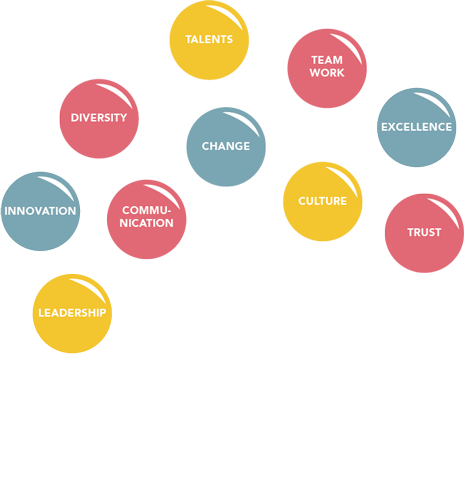
A total approach for challenges faced by business leaders


Increasingly, organisations struggle with low morale, lack of engagement, burnouts, lack of collective ownership, complacency, inertia, etc … The more complex the environment, the more business leaders feel the illusion of the “predict and control” strategy. The traditional leadership style has met its limits.
For the organisations ready for a different approach, Appreciative Inquiry will pave the way to distributed authority with autonomy, to agile “sense and response” mechanisms, to creativity and passion that comes with authenticity.
AI is a philosophy. It is the study – on personal and organisational level- of what gives life to human systems when they function at their best.
The process helps honour the past (continuity) and search for newness (novelty) in order to embrace movement toward the new future (transition).
We need to discover the root causes of success rather than the root causes of failure.
David Cooperrider
There is no such a thing as failure, there is only feedback.
NLP assumption
Understanding NLP (Neurolinguistic programming) allows us to better understand and help ourselves and others from a deep respect for who the other is.
Neuro refers to our neurological system, the way in which we use our senses (sight, sound, touch, taste and smell) to turn our experiences into conscious and unconscious thinking. NLP mainly reinforces the awareness of our neurological system and the way in which we can make the best use of it.
The linguistic part of NLP studies the way in which we use language to give meaning to our experiences and the way in which we convey these experiences to ourselves and others. NLP focuses on specific language patterns and helps us to have greater freedom of choice in the use and effects of our words.
Programming refers to the internal ‘encoding’ of the information about the world around us and our experiences. Our mental programs consist of a succession of behavioural and thought patterns resulting in a specific experience and result. NLP teaches us to create and install new and improved ways of thinking, feeling and behaving.
NLP consists of the interaction between these three elements.
Lumina Spark is a scientifically validated and reliable development model, which provides insight into the totality of everyone’s unique personality.
Lumina Spark is easy to understand and contains great depth and nuance. Based on 4 colors, 8 aspects and 24 traits, measured at 3 moments (instinct, daily and overloaded), you discover your contextual behavioral preferences.
Because both polarities of the spectrum are measured separately (you are not one or the other), possible contradictions in one’s personality become visible, resulting in a high degree of recognition.
The personalized profile offers colorful graphics and insightful texts that support interventions in the field of personal and team development..
What we see, mainly depends on what we look for.
John Lubbock
Change is the end result of true learning.
Leo Buscaglia
Designing a learning journey is not about summing up the latest trends in learning.
It is about understanding how people learn, and which steps, methods and tools are the most effective for making people learn in a certain situation.